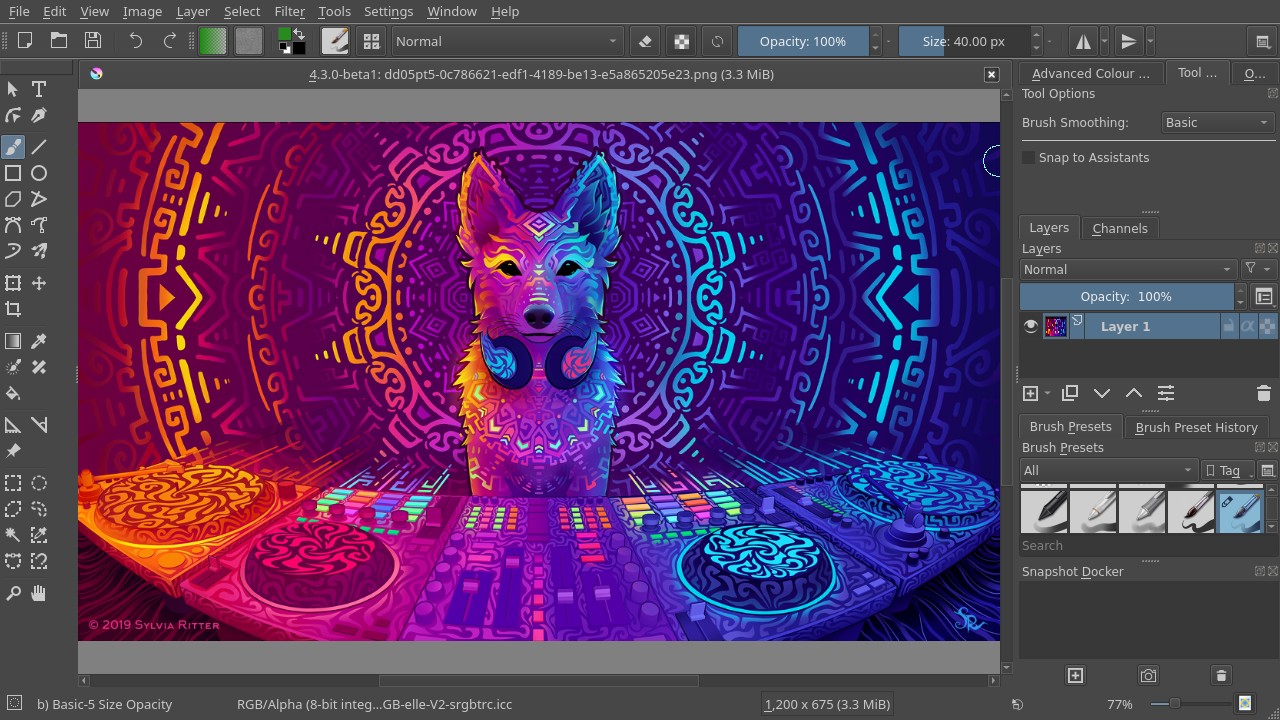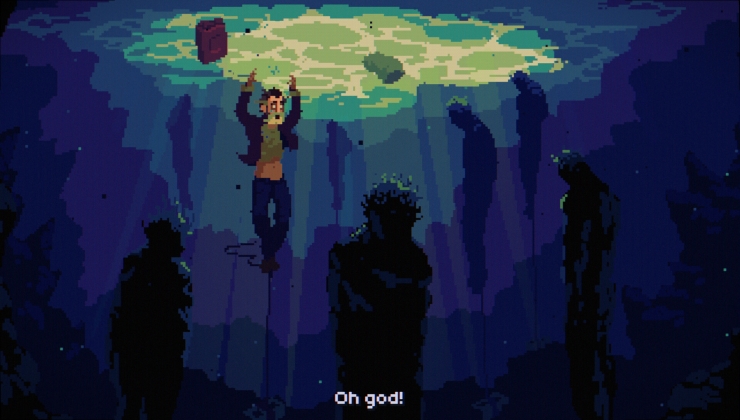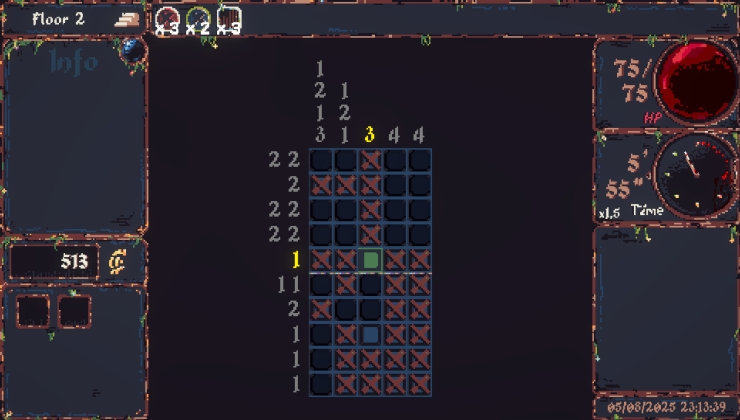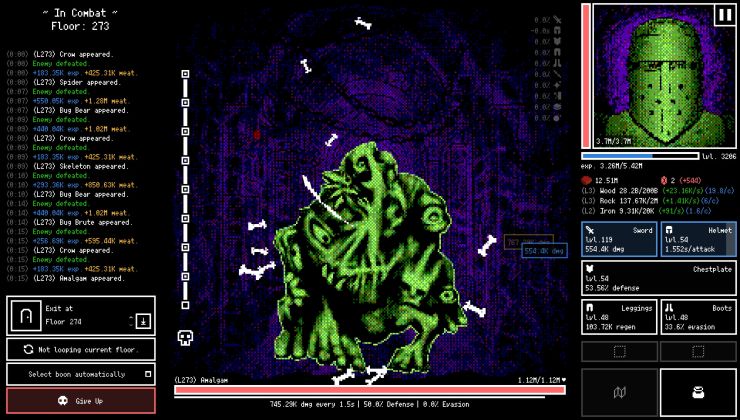Two big bits of software news for artists to share today as two major bits of FOSS software have big new versions up with Inkscape and Krita. Both examples of how great FOSS software can be, regardless of your use for designing game art or anything else.
After what feels like forever, vector graphics editor Inkscape finally hit the big 1.0 release yesterday! Such a huge release too moving over to GTK+3 for the interface bringing HiDPI improvements, better performance especially when editing node-heavy objects, a reorganized tool box with a more logical order to it, the canvas is more flexible for freestyle drawing, the UI is more customizable than ever, new PNG export options and the list goes on. You can see their official release video below:

Direct Link
We also have the painting app Krita, which has just seen the first 4.3.0 Beta version released coming around year after the 4.2 release. See the release notes here. This fresh update brings in some fun new filters, the performance of layer styles has been improved, window handling got more advanced as you can now detatch the canvas so it can have it's own window, you can save snapshots of the image at certain states to restore it, multiple new modes for the Gradient Tool and so on.
Additionally Krita's coloured brush tip image became more advanced, allowing you to set opacity and lightness separately, they say it enables you to "generate really impressive effects during the brushstroke".
Two awesome bits of FOSS software for creating various types of artwork and two huge releases. See more about each on their official site:
Last edited by Eike on 5 May 2020 at 11:50 am UTC
Quoting: EikeI really like modesty, but making a 1.0 after what feels after a decade of usefulness seems to be too much for me. (I can't remember what other famous example there was. Was it Gimp? One not so famous would be KDiff3, which I'm using forUnlike age, a version is just a number. ;)a decadeat least 17 years :O and which never got a 1.0 by its original maintainer.)
Fun anectode. I was Linux only user since ages when I graduated. Soon later I got my first job in a software firm. Which was ofc using windows machines. The embarrassment and ackwardness on my first day when my new boss and previous interviewer asked me to open a pdf on my new brand new Windows 7 machine and I was clueless on how to open the file manager, being the last windows I used at home win95. He looked at me like: "WTF I screw up in the interview?". XD
Krita, on the other hand, is new to me. I began using it when I bought an (admittedly cheap) graphics tablet a couple years ago. I'm still not at all adept with it, but find it indispensable for certain kinds of work. Along with Gimp and My Paint, it's one third of my FOSS graphics triumvirate.
Last edited by Nanobang on 6 May 2020 at 1:02 pm UTC
Quoting: tuubi:(Quoting: EikeI really like modesty, but making a 1.0 after what feels after a decade of usefulness seems to be too much for me. (I can't remember what other famous example there was. Was it Gimp? One not so famous would be KDiff3, which I'm using forUnlike age, a version is just a number. ;)a decadeat least 17 years :O and which never got a 1.0 by its original maintainer.)
;)
Since I've been [digging up old artwork](https://twitter.com/ValiantCheese/status/1257547719242993666) to share in celebration of the 1.0 launch, here's a quick look at one those for anybody who's interested.
I'm sure that Inkscape's been used for plenty of GOL artwork since, but that's a story for other artists to share ^_^
Last edited by Cheeseness on 5 May 2020 at 12:41 pm UTC
Quoting: CheesenessExciting times! I used Inkscape for some (now retired) graphics that Liam asked me to do for the site almost a decade ago. I can't recall now, but I think they were based on existing art that someone else had done that there weren't source files for.Hah wow, what a classic piece!
Since I've been [digging up old artwork](https://twitter.com/ValiantCheese/status/1257547719242993666) to share in celebration of the 1.0 launch, here's a quick look at one those for anybody who's interested.
External Media: You need to be logged in to view this.
I'm sure that Inkscape's been used for plenty of GOL artwork since, but that's a story for other artists to share ^_^
And Krita is just a perfect match for our Cintiq.
Quoting: GuestI looked up GIMP, but that had it's 1.0 in 1998. It might have been WINE what I remembered so vaguely.Quoting: EikeI really like modesty, but making a 1.0 after what feels after a decade of usefulness seems to be too much for me.My two favourite examples:
- [0 A.D.](https://play0ad.com/) is still pretending to be an alpha. It started as a Age of Empires Ⅱ mod in 2001, the current engine is libre software since 2009.
- [WINE](https://www.winehq.org/) reached 1.0 when it had already been in development for 15 years.
Last edited by HadBabits on 5 May 2020 at 6:32 pm UTC
Quoting: EikeI looked up GIMP, but that had it's 1.0 in 1998. It might have been WINE what I remembered so vaguely.Probably. Enlightenment's still on 0.23.1 after 23 years.
(In fairness, things got weird when they decided to keep 0.16 and 0.17 going in parallel. They prefer to call the current release “E23”, following a simplified Firefox-like numbering system, while E16, developed from the 0.16 codebase, officially reached 1.0 in 2009.)
Last edited by Dunc on 5 May 2020 at 8:40 pm UTC
Quoting: GuestIn the case of Wine, that seems fair . . .Quoting: EikeI really like modesty, but making a 1.0 after what feels after a decade of usefulness seems to be too much for me.My two favourite examples:
- [0 A.D.](https://play0ad.com/) is still pretending to be an alpha. It started as a Age of Empires Ⅱ mod in 2001, the current engine is libre software since 2009.
- [WINE](https://www.winehq.org/) reached 1.0 when it had already been in development for 15 years.
Disclaimer: These opinions are of a qualified professional graphic designer currently employed in a digital designer role.
I am really of the opinion these days that it's a lost cause to hope for the Adobe software to ever find it's way onto Linux unless somehow desktop Linux achieves a massive marketshare that makes it impossible to ignore, say 40% or more. Wine is the only hope there realistically and Wine still struggles with that complex software, it's just not reliable, and even in the best case outcomes, it works perhaps 99% of the time. When you're in a professional environment, "99%" reliable isn't reliable enough.
Not necessarily because Adobe is 'anti Linux' but because I imagine after such a long development history for applications like Photoshop, porting their codebases to other platforms could be possibly a nightmare that might take years for Adobe to complete.
So it's really important for artists who want to use Linux instead of Windows to have industry grade FOSS tools to work with instead, otherwise Linux just isn't an option.
In our industry, traditionally the FOSS alternatives like Inkscape and GIMP were always in the past considered "nice attempts" but woefully inadequate, not even viable to consider using as an alternative to Adobe's software, at least according to every designer I ever talked to about them, and from my own past experiences I've found them lacking many features I needed to perform my work, and their UIs felt 'ancient' & 'awkward' after any time spent using Adobe's software, like working with one arm tied behind your back.
I've seen some graphic designers spend weeks trying to use Inkscape and GIMP before straightup saying, "No I can't do my work like this, I need an Adobe CC subscription", and I've been there too giving both a solid try for a few weeks before concluding the same.
I've always supported both projects and regularly donated to them in the hope that one day that wouldn't be the case, because there's very little I'd love more than to cancel my Adobe CC subscription permanently.
Inkscape 1.0 is a really substantial update and I think it's appropriate they decided to make this version their "1.0" as this release truly feels like a proper alternative to Illustrator now, the improvements are not just substantial but also raise the quality of the application to within a stone's toss of Illustrator. The UI doesn't look quite as sleek as Illustrator 2020 but it's definitely boxing at the same weight level now.
Krita likewise with it's recent rapid improvements I would consider a feasible Photoshop alternative now, it's not perfect and like Inkscape I would say it still doesn't look quite as sleek as Photoshop, but it's capable of performing the kind of work that graphic designers would need it for at least. A modern live text tool and a lack of user friendly macro recording support is probably the last two outstanding features missing, and the text tool is getting fixed in the very next update I read.
Between LibreOffice, Inkscape, Krita, Blender, ArmorPaint and Godot 4.0, a digital artist/employee has almost everything they need for general office work and 2D, 3D, Vector & Interactive design work on Linux, and I love that!
That in combination with the fact that many things can be accessed via web apps and hence are compatible with every OS by default, like Slack, Discord, Office 365, etc, definitely makes working on Linux much more realistic.
Video & Sound editing software still need some work, but for my basic video and sound editing needs I find the existing options acceptable, but I know professional video and sound editors don't find the existing options quite good enough yet.
And we absolutely need a proper alternative to InDesign. Scribus vs InDesign is like MSPaint vs Photoshop.
The next big challenge is fighting the format lockin of Adobe's products, as you can imagine with Adobe CC being 'industry standard', more often than not, every time I get sent anything from another designer, it's often in Illustrator, Photoshop or InDesign format and there is really no straightforward conversion methods for such complex file formats. These file formats store information that in some cases can not be translated into anything that Inkscape or Krita can understand, which makes editing those documents very difficult.
But still, we're getting there, things are improving, and I think partly what has helped is Adobe's laziness in recent years, they've really slacked off and are just sitting back relaxing, milking Adobe CC subscriptions, their software updates to Photoshop/Illustrator/InDesign in recent years have been pathetic, mostly just cosmetic and superficial changes.
Last edited by gradyvuckovic on 6 May 2020 at 4:46 am UTC
Quoting: gradyvuckovicNot necessarily because Adobe is 'anti Linux'Not necessarily, no. But I've long thought they must be. Everything they've ever done seems to manage to be an important Achilles' heel for Linux. Look at Flash--as far as I recall, first they did nothing to get Linux browser plugins and such working. Then they made some stuff just in time to take the wind out of the sails of open source workarounds. Then they left the stuff they made crippled. Then I think they did it all over again when they bumped versions. So basically they did nothing except when doing something would create results even worse than nothing, in which case they did that.
Sure, Flash was evil, but for years it was nonetheless very important, and crappy Flash support single-handedly made browsing with Linux a second-class citizen for a crucial few years when it looked like Linux might grow on the desktop.
We still as far as I can tell have nothing decent to wrangle .pdf files. Nowadays trying to edit .pdf is the only time I ever wish I had my work Windows desktop when I'm on Linux at home, because I know of nothing remotely analogous to Acrobat pro. And I mean I don't even really like Acrobat that much as software, in terms of how it handles workflow or whatever, but when it comes to taking scissors and tape to a .pdf file nothing else seems willing to do much at all. I dunno, maybe some of the art-type programs can, but that's from a completely different paradigm, not much use dealing with text and merging files and shuffling pages.
I swear over the years Adobe has hurt us more than Microsoft ever did even though MS was trying really hard and landed some shrewd blows. It's plausible that wasn't on purpose, but I gotta say pretty impressive to manage it by accident.
Quoting: Purple Library GuyYeah no doubt. I don't think they are deliberately trying to prevent Linux from becoming popular, only because I see no immediate logical financial motivation for that, short of some kind of "grand scheme", and I feel most of their actions can be pretty easily explained as just Adobe being incredibly lazy and doing only the bare minimum level of support they feel is necessary financially to maintain their cashcows.Quoting: gradyvuckovicNot necessarily because Adobe is 'anti Linux'Not necessarily, no. But I've long thought they must be. Everything they've ever done seems to manage to be an important Achilles' heel for Linux. Look at Flash--as far as I recall, first they did nothing to get Linux browser plugins and such working. Then they made some stuff just in time to take the wind out of the sails of open source workarounds. Then they left the stuff they made crippled. Then I think they did it all over again when they bumped versions. So basically they did nothing except when doing something would create results even worse than nothing, in which case they did that.
Sure, Flash was evil, but for years it was nonetheless very important, and crappy Flash support single-handedly made browsing with Linux a second-class citizen for a crucial few years when it looked like Linux might grow on the desktop.
We still as far as I can tell have nothing decent to wrangle .pdf files. Nowadays trying to edit .pdf is the only time I ever wish I had my work Windows desktop when I'm on Linux at home, because I know of nothing remotely analogous to Acrobat pro. And I mean I don't even really like Acrobat that much as software, in terms of how it handles workflow or whatever, but when it comes to taking scissors and tape to a .pdf file nothing else seems willing to do much at all. I dunno, maybe some of the art-type programs can, but that's from a completely different paradigm, not much use dealing with text and merging files and shuffling pages.
I swear over the years Adobe has hurt us more than Microsoft ever did even though MS was trying really hard and landed some shrewd blows. It's plausible that wasn't on purpose, but I gotta say pretty impressive to manage it by accident.
Yet none the less, they have been one of THE major thorns in Linux's side from the beginning. Mostly because they are everything that's wrong with proprietary software: Buying successful software to add to their monopoly*, format lockin with file formats that are proprietary and undocumented, subscription models for software that receives little more than quality of life improvements every few months, closed source apps that are only available on a limited range of platforms forcing users to change what software/OS they use to suit Adobe CC rather than the other way around.
(*No joke, look into the history of most of the software that Adobe sells and most of it was bought from other companies (even Photoshop) and they're still buying software to this day, eg: they recently bought Substance Painter.)
It's hard to argue with their logic, their total disregard for how they treat customers and willingness to engage in anti-user behaviour and compete via vendor-lockin has worked very well for them, they're making billions every year from it.
They're one of the last standing giants of the old traditional business model of delivering software in the 90s and 00s, and the only reason they've lasted so long is because of that huge catalogue of software under their umbrella from their acquisitions and format lockin, they're so ingrained in the design industry that removing them is going to be like trying to perform a skeleton-transplant on a living person.
Autodesk are the other thorn in our sides for the design industry, but they're becoming less of an issue now Blender is rocketing ahead faster than anyone can keep pace.
It seems the only way to ever fully muscle Autodesk and Adobe out of the industry, is to make the entire design software industry FOSS, otherwise they'll just keep buying every proprietary application that rises up to challenge their monopolies.
So it's great to see the FOSS design software really stepping up it's game, eventually it will starve Autodesk and Adobe, or at least force them to move into other industries or refocus on providing services rather than software.
Quoting: Purple Library GuyWe still as far as I can tell have nothing decent to wrangle .pdf files. Nowadays trying to edit .pdf is the only time I ever wish I had my work Windows desktop when I'm on Linux at home, because I know of nothing remotely analogous to Acrobat pro. And I mean I don't even really like Acrobat that much as software, in terms of how it handles workflow or whatever, but when it comes to taking scissors and tape to a .pdf file nothing else seems willing to do much at all. I dunno, maybe some of the art-type programs can, but that's from a completely different paradigm, not much use dealing with text and merging files and shuffling pages.Simple merging and page shuffling you can achieve easily with pdfshuffler. It has no editing features, but it does what it says on the tin and it does it intuitively. Just drag and drop files and pages, then save the result.
Quoting: tuubiThank you so much! That's going to be very handy. I just went to install it, turns out my distro has it already installed and I never noticed the thing.Quoting: Purple Library GuyWe still as far as I can tell have nothing decent to wrangle .pdf files. Nowadays trying to edit .pdf is the only time I ever wish I had my work Windows desktop when I'm on Linux at home, because I know of nothing remotely analogous to Acrobat pro. And I mean I don't even really like Acrobat that much as software, in terms of how it handles workflow or whatever, but when it comes to taking scissors and tape to a .pdf file nothing else seems willing to do much at all. I dunno, maybe some of the art-type programs can, but that's from a completely different paradigm, not much use dealing with text and merging files and shuffling pages.Simple merging and page shuffling you can achieve easily with pdfshuffler. It has no editing features, but it does what it says on the tin and it does it intuitively. Just drag and drop files and pages, then save the result.
Quoting: Purple Library GuyFor those who wonder: At least Debian has replaced it by the fork "pdfarranger" (but has a compatibility package with the old name).Quoting: tuubiSimple merging and page shuffling you can achieve easily with pdfshuffler. It has no editing features, but it does what it says on the tin and it does it intuitively. Just drag and drop files and pages, then save the result.Thank you so much! That's going to be very handy. I just went to install it, turns out my distro has it already installed and I never noticed the thing.
Last edited by Eike on 6 May 2020 at 8:08 pm UTC
On the other hand I've never actually used Krita, I don't think. How does it compare to GIMP (which I'm moderately familiar with)? Not in a "which is better" way, I just want an honest evaluation of the strengths and weaknesses (or maybe the different design goals) of each. I'm always interested in finding and learning another cool FOSS tool. :)











 How to setup OpenMW for modern Morrowind on Linux / SteamOS and Steam Deck
How to setup OpenMW for modern Morrowind on Linux / SteamOS and Steam Deck How to install Hollow Knight: Silksong mods on Linux, SteamOS and Steam Deck
How to install Hollow Knight: Silksong mods on Linux, SteamOS and Steam Deck